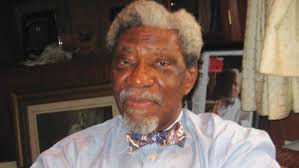The federal government has no business getting entangled in the business of building houses as that responsibility constitutionally belongs to the states.
Former federal commissioner (minister) for works during the military government of General Yakubu Gowon, Lateef Femi Okunnu, a senior advocate of Nigeria (SAN) said that the federal government, since the 1979 and 1999 constitutions, have been usurping the functions of states, including housing provision.
In August 2017, the federal government of Nigeria announced it was embarking on a national housing scheme across 33 states of the federation.
The plan, according to the announcement, would involve building 2,736 housing units across the country.
Hakeem Bello, special adviser on media and communications to the minister of power, works and housing, Babatunde Raji Fashola, quoted the minister as announcing this in Abuja at the Sixth National Council Meeting on Lands, Housing and Urban Development which focused on the theme: “Building for Inclusion, Growth and Prosperity.”
Before this, there had been several federal housing estates across the states in Nigeria. The Katangora federal housing estate in Alimosho, Lagos, is one of such.
But Okunnu said that, “The Federal Government has no business with housing. It has no land to build houses in these states.”
According to him, the Nigerian constitution stated exclusive roles such as banking, currency, external affairs, immigration, citizenship to the federal government but housing is certainly not the federal government role.
“This is not a true concept of federalism,” he said.
Okunnu’s position brings to the fore the debate about how the central authorities have become so powerful that states now have to shuttle to Abuja, the federal capital with begging bowls to queue for their share of revenues.
The federal government has often been accused of forcefully taking over certain roles of states in a federal system, and that the states have tended to appear ignorant while burying such a weighty matter in politics.
“This is one of the problems limiting Nigeria as a country. Until we fix this, we’re going nowhere as a country,” he said.

 Comments and Issues7 days ago
Comments and Issues7 days ago
 Education1 week ago
Education1 week ago
 Comments and Issues1 week ago
Comments and Issues1 week ago
 Energy1 week ago
Energy1 week ago
 Comments and Issues6 days ago
Comments and Issues6 days ago
 Comments and Issues6 days ago
Comments and Issues6 days ago
 Football1 week ago
Football1 week ago
 Health5 days ago
Health5 days ago

